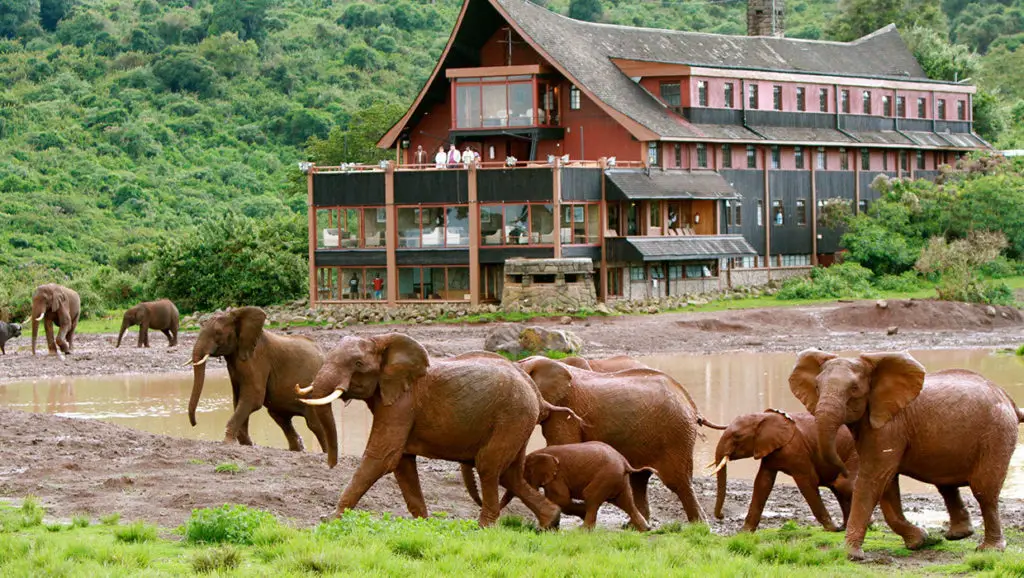The economic activities in Marsabit Town, Kenya, are primarily centered around pastoralism, agriculture, small-scale trading, and emerging sectors such as tourism and mining. As the capital of Marsabit County, the town serves as a commercial hub for the surrounding arid and semi-arid regions.
Despite challenges posed by its remote location and harsh climate, Marsabit’s economy is diversifying, with a mix of traditional and modern economic practices shaping its development.
What are the main economic activities in Marsabit Town?
The main economic activities in Marsabit Town include:
- Pastoralism
- Agriculture
- Trade and commerce
- Small-scale industries
- Tourism
- Mining
- Public sector employment
- Service industry
How significant is pastoralism to Marsabit’s economy?
Pastoralism is the dominant economic activity in Marsabit:
- Primary source of livelihood for many residents
- Involves rearing of camels, cattle, goats, and sheep
- Contributes significantly to local food security
- Provides raw materials for small-scale industries
- Culturally significant practice for many ethnic groups
- Faces challenges due to climate change and land degradation
What role does agriculture play in Marsabit’s economy?
Agriculture in Marsabit is characterized by:
- Small-scale crop farming
- Subsistence agriculture in areas with sufficient rainfall
- Cultivation of drought-resistant crops
- Growing importance of greenhouse farming
- Challenges due to water scarcity and erratic rainfall
- Potential for expansion with improved irrigation techniques
Common crops include maize, beans, khat (miraa), and various fruits and vegetables.
How important is trade and commerce to Marsabit’s economy?
Trade and commerce are vital to Marsabit’s economy:
- Marsabit town serves as a regional trading center
- Local markets facilitate exchange of goods and services
- Cross-border trade with Ethiopia contributes to economic activity
- Small businesses and shops form the backbone of urban commerce
- Challenges include poor infrastructure and limited access to financial services
What small-scale industries are present in Marsabit?
Small-scale industries in Marsabit include:
- Leather processing
- Milk processing
- Beekeeping and honey production
- Handicraft making
- Furniture manufacturing
- Food processing (e.g., meat products)
- Tailoring and textiles
These industries often rely on local raw materials and traditional skills.
How does tourism contribute to Marsabit’s economy?
Tourism’s contribution to Marsabit’s economy is growing:
- Centered around Marsabit National Park and Reserve
- Provides employment in hospitality and guiding services
- Promotes local crafts and cultural experiences
- Faces challenges due to limited infrastructure and accessibility
- Has potential for expansion with proper investment and marketing
What mining activities occur in Marsabit?
Mining in Marsabit is an emerging sector:
- Exploration for oil and natural gas in the broader county
- Small-scale mining of gemstones and decorative stones
- Potential for further mineral exploration and extraction
- Challenges include environmental concerns and benefit-sharing with local communities
How does the public sector contribute to Marsabit’s economy?
The public sector plays a significant role:
- Major employer in the town
- Provides essential services (education, healthcare, administration)
- Implements development projects and infrastructure improvements
- Manages public resources and regulations
- Facilitates partnerships with NGOs and international organizations
What is the state of the service industry in Marsabit?
The service industry in Marsabit is developing:
- Growing hospitality sector (hotels, restaurants)
- Financial services (banks, microfinance institutions)
- Transportation services
- Communication services (mobile networks, internet providers)
- Educational and health services
- Challenges include limited skilled workforce and infrastructure
How does Marsabit’s economy compare to other Kenyan towns?
Comparison of Marsabit’s economy with other Kenyan towns:
| Aspect | Marsabit | Isiolo | Nakuru |
|---|---|---|---|
| Main Economic Activities | Pastoralism, Agriculture | Trade, Pastoralism | Agriculture, Manufacturing |
| Level of Industrialization | Low | Low-Medium | Medium-High |
| Tourism Development | Emerging | Moderate | Well-developed |
| Infrastructure | Limited | Developing | Well-established |
| Economic Diversity | Moderate | Moderate | High |
| Access to Markets | Limited | Moderate | Good |
What challenges does Marsabit’s economy face?
Marsabit’s economy faces several challenges:
- Harsh climate and frequent droughts
- Limited infrastructure (roads, electricity, water)
- Isolation from major national markets
- Low levels of formal education and skilled labor
- Ethnic conflicts and security issues
- Limited access to credit and financial services
- Environmental degradation and climate change impacts
- Dependence on rain-fed agriculture and pastoralism
How is technology influencing economic activities in Marsabit?
Technology is increasingly impacting Marsabit’s economy:
- Mobile money services improving financial inclusion
- Digital platforms connecting local businesses to broader markets
- Solar energy solutions addressing electricity shortages
- Improved communication through mobile networks and internet
- Use of GPS and mobile apps in livestock management
- E-learning platforms expanding educational opportunities
- Challenges include limited digital literacy and infrastructure
What role do women play in Marsabit’s economy?
Women contribute significantly to Marsabit’s economy:
- Active in small-scale trading and markets
- Involved in handicraft production
- Participate in agricultural activities
- Increasingly entering formal employment sectors
- Run small businesses and micro-enterprises
- Face challenges such as limited access to credit and cultural barriers
- Targeted by various empowerment and microfinance initiatives
How does the informal sector contribute to Marsabit’s economy?
The informal sector is a crucial part of Marsabit’s economy:
- Provides employment for a significant portion of the population
- Includes small-scale traders, artisans, and service providers
- Offers flexible employment opportunities
- Contributes to local supply chains
- Faces challenges such as lack of social protection and limited growth potential
- Often serves as a stepping stone to formal business establishment
What initiatives are in place to promote economic development in Marsabit?
Several initiatives aim to promote economic development:
- County government development projects
- NGO-led livelihood diversification programs
- Microfinance and small business support schemes
- Youth and women empowerment projects
- Infrastructure development (roads, water, electricity)
- Agricultural extension services and support
- Tourism promotion efforts
- Cross-border trade facilitation
How does climate change impact economic activities in Marsabit?
Climate change significantly affects Marsabit’s economy:
- Increasing frequency and severity of droughts
- Impacts on pastoralism through reduced grazing lands
- Challenges to rain-fed agriculture
- Water scarcity affecting both urban and rural areas
- Potential for increased conflicts over resources
- Necessity for adaptation strategies in various economic sectors
- Opportunities for climate-resilient economic activities
What is the potential for renewable energy in Marsabit’s economy?
Renewable energy has significant potential in Marsabit:
- Solar energy: High solar irradiation levels suitable for PV systems
- Wind power: Strong winds, especially in certain areas of the county
- Geothermal potential: Part of the Great Rift Valley geological system
- Opportunities for off-grid solutions in remote areas
- Potential to address energy poverty and support economic activities
- Challenges include initial investment costs and technical expertise
How does Marsabit’s location influence its economic activities?
Marsabit’s location impacts its economy in several ways:
Advantages:
- Strategic position for cross-border trade with Ethiopia
- Unique ecosystem supporting tourism and biodiversity-based activities
- Isolation preserving traditional economic practices and cultural tourism potential
Disadvantages:
- Remote from major national markets and supply chains
- Challenging transport logistics increasing costs of goods
- Limited access to skilled labor and modern economic infrastructure
What is the role of foreign aid and NGOs in Marsabit’s economy?
Foreign aid and NGOs play a significant role:
- Implement development projects in various sectors
- Provide humanitarian assistance during crises (e.g., droughts)
- Support capacity building and skills development
- Facilitate access to markets and value chain development
- Promote sustainable resource management
- Supplement government efforts in service provision
- Challenges include dependency and sustainability of interventions
In conclusion, the economy of Marsabit Town, Kenya, is characterized by a blend of traditional pastoralism, emerging modern sectors, and a growing emphasis on diversification.
While facing significant challenges due to its remote location and harsh climate, Marsabit’s economy shows potential for growth through sectors such as tourism, renewable energy, and improved agricultural practices.
The town’s role as a regional hub, combined with ongoing development initiatives, positions it for potential economic transformation. However, addressing infrastructural, educational, and environmental challenges will be crucial for sustainable economic development in this unique part of Kenya.



